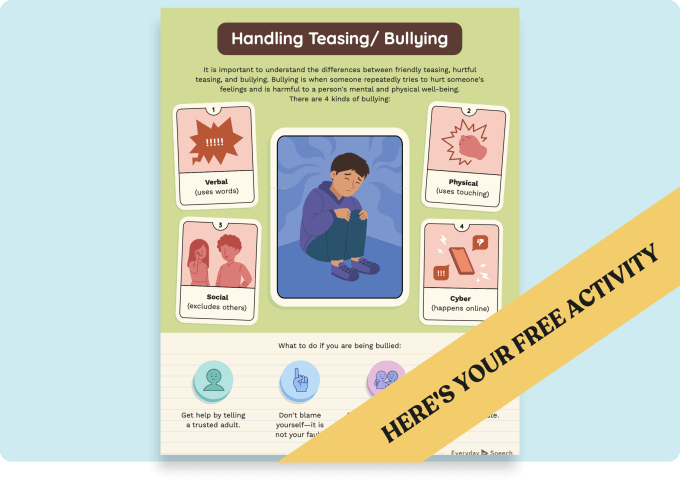Effective IEP Goals for Developing Positive Correction Skills
Get free social skills materials
No-prep lessons on self-regulation, emotional recognition, conversation skills, and more.
Sign up hereDownload 50+ Example IEP Goals
Customizable library of strengths-based goals
In special education, it is crucial to identify and nurture the skills that enable students to interact positively with others and adapt to social situations. One such skill is the ability to provide constructive feedback or correct others in a respectful manner. This blog post will explore the significance of developing positive correction skills, the role of specialists in supporting this skill, and specific IEP goals and strategies to help students improve their correction abilities.
Understanding Positive Correction Skills
Positive correction skills involve the ability to provide feedback or correct others in a respectful and considerate manner. These skills are essential for fostering healthy relationships, enhancing learning experiences, and promoting emotional wellbeing. Students with well-developed positive correction skills are more likely to engage in productive discussions, collaborate effectively, and maintain a positive learning environment.
The Role of Specialists
Various specialists can support the development of positive correction skills in students:
- Speech-Language Pathologists: They can help students improve their communication skills and express their thoughts more effectively.
- Social Workers: They can provide guidance on appropriate social behaviors and help students understand the impact of their actions on others.
- Psychologists: They can offer insights into the emotional aspects of correction and help students develop empathy and self-regulation skills.
- School Counselors: They can facilitate group activities and discussions to practice positive correction skills in a safe and supportive environment.
IEP Goals for Positive Correction Skills
Here are some SMART IEP goals to help students develop positive correction skills:
Goal 1: Improve self-awareness
By the end of the school year, the student will demonstrate increased self-awareness by identifying at least three instances per week when they felt the urge to correct others and evaluating the appropriateness of their response.
Strategies and activities: Role-playing, self-reflection exercises, and group discussions.
Goal 2: Develop effective communication skills
By the end of the school year, the student will improve their communication skills by using “I” statements and active listening techniques in at least 80% of interactions where correction is necessary.
Strategies and activities: Social scripts, practicing active listening, and modeling appropriate language.
Goal 3: Enhance empathy and emotional regulation
By the end of the school year, the student will demonstrate increased empathy by considering the feelings of others before correcting them and using self-regulation strategies to manage their emotions in 90% of situations where they feel the need to correct someone.
Strategies and activities: Emotional regulation exercises, perspective-taking activities, and empathy-building games.
Implementing and Measuring Progress
Implementing these IEP goals requires consistent support and collaboration among educators, specialists, and families. Regularly review the student’s progress by observing their behavior, gathering feedback from peers and teachers, and assessing their ability to apply positive correction skills in various social contexts.
Conclusion
Teaching positive correction skills is essential for helping students with special needs navigate social situations and maintain healthy relationships. By implementing these IEP goals and strategies, educators can support the development of these crucial skills and promote a positive learning environment. We encourage you to explore more resources and sample materials at Everyday Speech Sample Materials to further enhance your students’ social and emotional growth.


